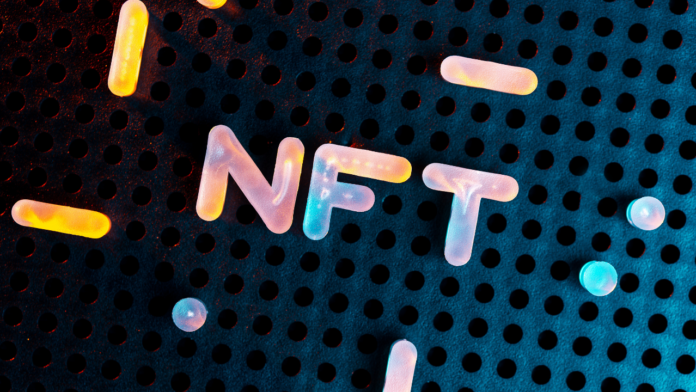The non-fungible token (NFT) sector is witnessing a series of fascinating shifts and transformations, reflecting the dynamic nature of this innovative digital asset class. From the significant growth of BRC-20 tokens to the strategic decisions of major corporations and social media platforms, the NFT landscape is evolving rapidly, presenting new opportunities and challenges.
Binance Research has recently spotlighted the remarkable growth of BRC-20 tokens, which leverage the Bitcoin Ordinals protocol. This development is a testament to Bitcoin’s expanding influence beyond its traditional role as a digital currency. The emergence of these tokens on the Bitcoin blockchain indicates a growing acceptance and integration of NFTs within this ecosystem, underscoring Bitcoin’s versatility. The BRC-20 tokens represent a novel approach to NFTs, offering a unique blend of Bitcoin’s robust security and the distinctiveness of non-fungible assets.
Meanwhile, in a surprising move, a prominent social media platform, referred to as Platform X, has decided to remove NFT profile pictures, citing concerns over fake accounts and potential scams. This decision has stirred a debate among its users, with some viewing it as a setback for the NFT space. The removal highlights the ongoing challenges that digital platforms face in balancing innovation with security and user trust.
In the retail sector, GameStop announced plans to shut down its NFT marketplace by February 2024 due to the uncertain regulatory landscape surrounding cryptocurrencies. While the closure marks a significant step back for the company’s NFT initiative, it also underscores the broader regulatory and market challenges facing the crypto space. GameStop’s existing NFTs will remain on the blockchain, accessible for trading on other platforms, indicating the persistence and adaptability of NFTs despite market shifts.
A recent regulatory development has also impacted the NFT sector. The U.S. Securities and Exchange Commission’s approval of spot Bitcoin ETFs has sparked a renewed interest in NFTs. Experts suggest that the growing acceptance and understanding of Bitcoin could benefit the NFT market, especially given the development of the Bitcoin NFT ecosystem using Bitcoin Ordinals. This approval may serve as a catalyst for increased institutional and retail investment in NFTs, linking traditional financial markets with the burgeoning world of digital assets.
Ethereum, a long-time leader in the NFT market, has recently outpaced Bitcoin in NFT sales, reclaiming its position as the most-traded blockchain network for NFTs. This shift indicates a changing dynamic in the NFT market, with Ethereum strengthening its dominance. Ethereum’s surge in NFT trading sales highlights its continued appeal to creators and investors, thanks to its established infrastructure and community.
Despite these positive developments, the NFT market has experienced a slight downturn, with a 4.7% decrease in sales volume. However, this decline is contrasted by a 3% increase in the number of buyers and a significant 70% rise in the total number of NFT transactions. This mixed trend reflects the market’s volatility and the evolving nature of buyer and seller behavior in the NFT space.
The NFT sector is also seeing an influx of new ventures and partnerships, indicating its growing appeal across various industries. For instance, Other Page, a Web3 native platform, is merging diverse elements such as marketplaces, social profiles, and gaming data into a unified URL. This integration exemplifies the potential of NFTs to revolutionize how online identities and assets are managed and presented.
Moreover, Mercedes-Benz has ventured into the NFT world with the launch of its MBUX Collectibles digital gallery app. This app allows users to explore and display brand-related NFTs through their car’s user interface, showcasing how traditional companies are embracing NFTs to enhance customer engagement and brand experience.
In the sports realm, the Vegas Golden Knights hockey team has partnered with Theta Labs to offer exclusive NFT-based fan experiences. This collaboration highlights how NFTs are being used to create unique, value-added interactions for fans, blending the worlds of sports, technology, and digital collectibles.
The NFT landscape is undergoing significant changes, driven by technological advancements, regulatory shifts, and strategic decisions by key players. The growth of BRC-20 tokens on the Bitcoin blockchain, the changing policies of social media platforms, the closure of GameStop’s NFT marketplace, and the rising interest following the approval of spot Bitcoin ETFs, all paint a picture of a sector at the crossroads of innovation and adaptation. As Ethereum reasserts its dominance and new ventures emerge, the NFT market continues to offer a fascinating glimpse into the future of digital ownership and asset management. This evolving landscape presents both opportunities and challenges, underscoring the need for ongoing dialogue, regulatory clarity, and technological refinement in the world of NFTs.


